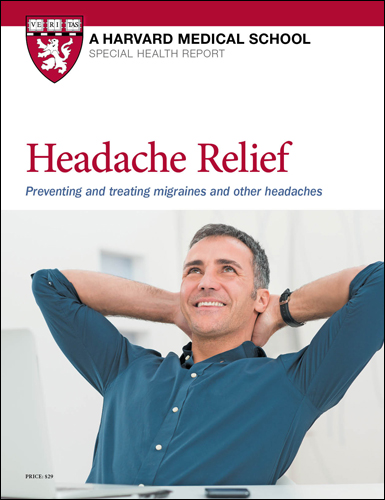When to see your doctor for headache pain

About 50% of people experience headaches at least once a month, 15% at least once a week, and 5% every day or nearly every day. But only a small fraction of these people ever seek a doctor's attention, since most headaches are relatively mild and disappear on their own or with the help of an over-the-counter pain reliever, rest, or a good night's sleep. But what about headaches that are severe, occur often, or are unresponsive to nonprescription pain relievers?
Although headaches are rarely harbingers of more ominous disease, it makes sense to see your doctor if you're having headaches frequently, if your headaches interfere with your ability to function, or if you have an existing headache pattern that changes in any particular way. Start with your primary care doctor, who can refer you to a general neurologist or a neurologist specializing in headaches if needed.
Because the following symptoms could indicate a serious health problem, seek medical care promptly if you experience any of these:
- a sudden headache that feels like a blow to the head
- a headache with fever
- a headache with convulsions
- a persistent headache following a blow to the head
- a headache with confusion or loss of consciousness
- a headache along with pain in the eye or ear
- a relentless headache when you were previously headache-free
- a headache that is incapacitating.
Note that you should always take children who have recurring headaches to the doctor, especially when the pain occurs at night or is present when the child wakes in the morning.
For more information on preventing, diagnosing, and treating headaches, read Headache Relief: Preventing and treating migraines and other headaches, a Special Health Report from Harvard Medical School.
Image: © Kanawa_Studio/Getty Images
Disclaimer:
As a service to our readers, Harvard Health Publishing provides access to our library of archived content. Please note the date of last review or update on all articles.
No content on this site, regardless of date, should ever be used as a substitute for direct medical advice from your doctor or other qualified clinician.













